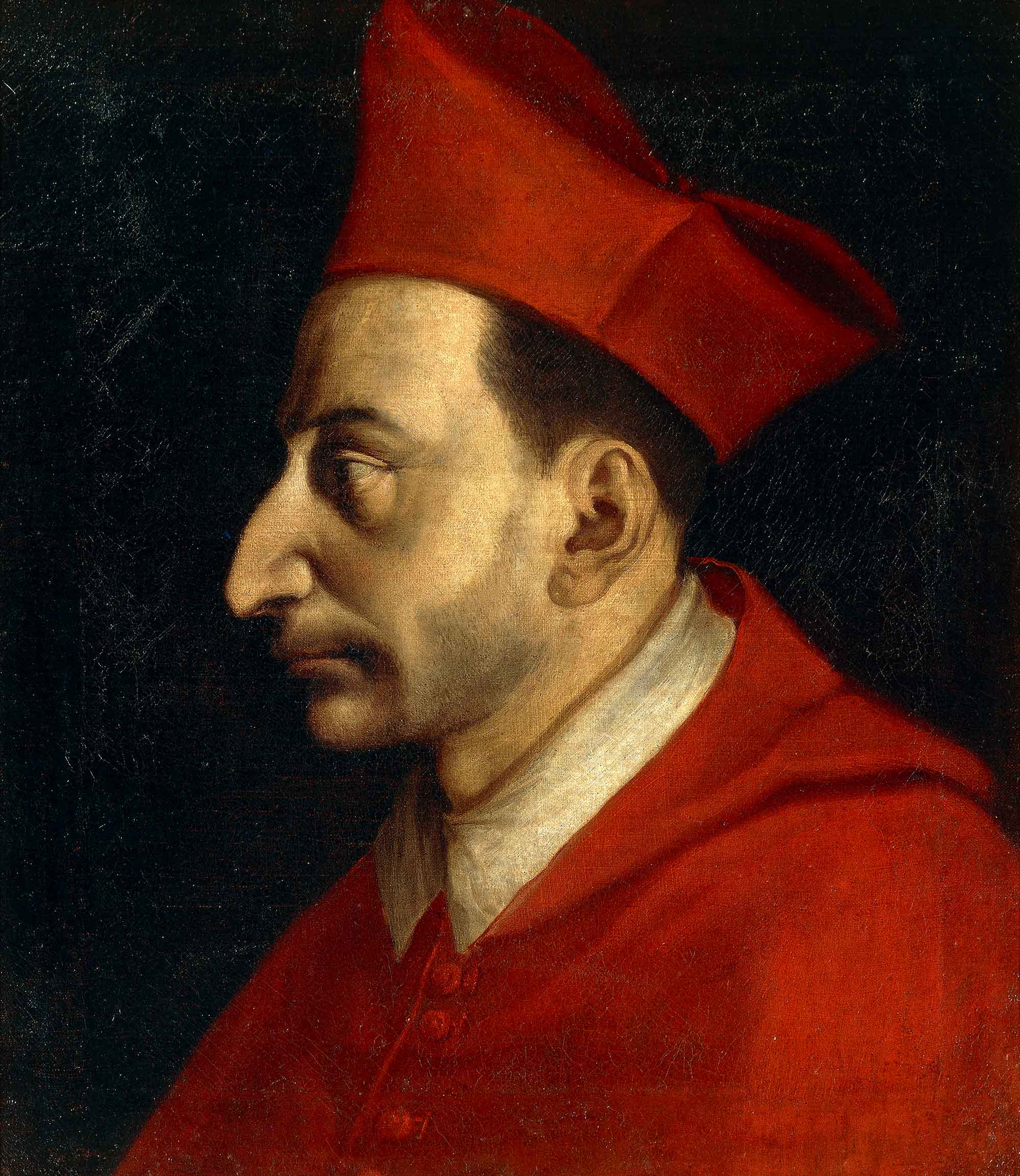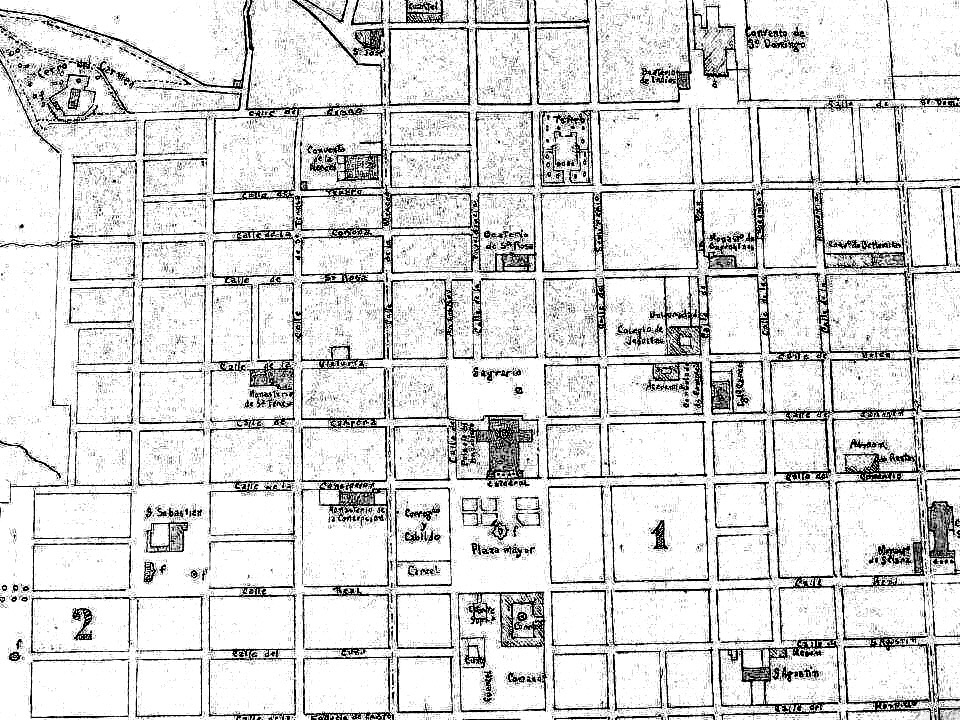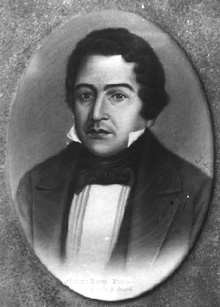|
Burning Of The Spanish Embassy
The Burning of the Spanish Embassy (sometimes called the Spanish Embassy Massacre or the Spanish Embassy Fire) refers to the occupation of the Spanish Embassy in Guatemala City, Guatemala, on January 31, 1980, by indigenous peasants of the Committee for Peasant Unity and their allies and the subsequent police raid that resulted in a fire which destroyed the embassy and left 37 people dead. The incident has been called "the defining event" of the Guatemalan Civil War. Spain terminated diplomatic relations with Guatemala as a result. History Background In January 1980 a group of K'iche' and Ixil peasant farmers, recruited for a march to Guatemala City to protest the kidnapping and murder of peasants in Uspantán, in Quiché department, by elements of the Guatemalan Army. The peasants were organized, guided and joined by members of the ''Comité de Unidad Campesina'' ( Committee of Peasant Unity) and a radical student organization known as the Robin García Revolutionary Stu ... [...More Info...] [...Related Items...] OR: [Wikipedia] [Google] [Baidu] |
Guatemala City, Guatemala
Guatemala City (, also known colloquially by the nickname Guate), is the national capital and largest city of the Republic of Guatemala. It is also the municipal capital of the Guatemala Department and the most populous urban metropolitan area in Central America. The city is located in a mountain valley called Valle de la Ermita () in the south-central part of the country. Guatemala City is the site of the native Mayan city of Kaminaljuyu in Mesoamerica, which was occupied primarily between 1500 BCE and 1200 CE. The present city was founded by the Spanish after their colonial capital, now called Antigua Guatemala, was destroyed by the devastating 1773 Santa Marta earthquake and its aftershocks. It became the third royal capital of the surrounding Captaincy General of Guatemala; which itself was part of the larger Viceroyalty of New Spain in imperial Spanish America and remained under colonial rule until the nineteenth century. In September 1821, Guatemala City was the site ... [...More Info...] [...Related Items...] OR: [Wikipedia] [Google] [Baidu] |
Spain
Spain, or the Kingdom of Spain, is a country in Southern Europe, Southern and Western Europe with territories in North Africa. Featuring the Punta de Tarifa, southernmost point of continental Europe, it is the largest country in Southern Europe and the fourth-most populous European Union member state. Spanning across the majority of the Iberian Peninsula, its territory also includes the Canary Islands, in the Eastern Atlantic Ocean, the Balearic Islands, in the Western Mediterranean Sea, and the Autonomous communities of Spain#Autonomous cities, autonomous cities of Ceuta and Melilla, in mainland Africa. Peninsular Spain is bordered to the north by France, Andorra, and the Bay of Biscay; to the east and south by the Mediterranean Sea and Gibraltar; and to the west by Portugal and the Atlantic Ocean. Spain's capital and List of largest cities in Spain, largest city is Madrid, and other major List of metropolitan areas in Spain, urban areas include Barcelona, Valencia, Seville, ... [...More Info...] [...Related Items...] OR: [Wikipedia] [Google] [Baidu] |
Terrorist
Terrorism, in its broadest sense, is the use of violence against non-combatants to achieve political or ideological aims. The term is used in this regard primarily to refer to intentional violence during peacetime or in the context of war against non-combatants. There are various different definitions of terrorism, with no universal agreement about it. Different definitions of terrorism emphasize its randomness, its aim to instill fear, and its broader impact beyond its immediate victims. Modern terrorism, evolving from earlier iterations, employs various tactics to pursue political goals, often leveraging fear as a strategic tool to influence decision makers. By targeting densely populated public areas such as transportation hubs, airports, shopping centers, tourist attractions, and nightlife venues, terrorists aim to instill widespread insecurity, prompting Public policy, policy changes through Manipulation (psychology), psychological manipulation and undermining confidence ... [...More Info...] [...Related Items...] OR: [Wikipedia] [Google] [Baidu] |
University Of San Carlos Of Guatemala
The Universidad de San Carlos de Guatemala (USAC, ''University of San Carlos of Guatemala'') is the largest and oldest university of Guatemala; it is also the fourth founded in the Americas. Established in the Kingdom of Guatemala during the Spanish colony, it was the only university in Guatemala until 1954,In 1954 a coup led by the National Liberation Movement which was sponsored by the United Fruit Company and coordinated by CIA and State Department American operatives who had links with the US company triumphed . although it continues to hold distinction as the only public university in the entire country. The university grew out of the Colegio de Santo Tomás de Aquino (Saint Thomas Aquinas High School), founded in 1562 by Bishop Francisco Marroquín. After a series of 1773 Guatemala earthquake, major earthquakes in 1773, which destroyed many parts of the city of Santiago de los Caballeros, the crown authorities ordered the evacuation of the city and the relocation of its gov ... [...More Info...] [...Related Items...] OR: [Wikipedia] [Google] [Baidu] |
Nobel Peace Prize
The Nobel Peace Prize (Swedish language, Swedish and ) is one of the five Nobel Prizes established by the Will and testament, will of Sweden, Swedish industrialist, inventor, and armaments manufacturer Alfred Nobel, along with the prizes in Nobel Prize in Chemistry, Chemistry, Nobel Prize in Physics, Physics, Nobel Prize in Physiology or Medicine, Physiology or Medicine, and Nobel Prize in Literature, Literature. Since March 1901, it has been awarded annually (with some exceptions) to people who have "done the most or the best work for fraternity between nations, for the abolition or reduction of standing armies and for the holding and promotion of peace congresses." ''The Oxford Dictionary of Contemporary History'' describes it as "the most prestigious prize in the world." In accordance with Nobel's will, the recipient is selected by the Norwegian Nobel Committee, a five-member committee appointed by the Parliament of Norway. The prize award ceremony is held in Oslo City Hall si ... [...More Info...] [...Related Items...] OR: [Wikipedia] [Google] [Baidu] |
Rigoberta Menchú
Rigoberta Menchú Tum (; born 9 January 1959) is a K'iche' Guatemalan human rights activist, feminist, and Nobel Peace Prize laureate. Menchú has dedicated her life to publicizing the rights of Guatemala's Indigenous peoples during and after the Guatemalan Civil War (1960–1996), and to promoting Indigenous rights internationally. In 1992 she received the Nobel Peace Prize, became an UNESCO Goodwill Ambassador, and received the Prince of Asturias Award in 1998. Menchú is also the subject of the testimonial biography ''I, Rigoberta Menchú'' (1983) author of the autobiographical work, ''Crossing Borders'' (1998), and is subject interest among other works. Menchú founded the country's first indigenous political party, Winaq, and ran for president of Guatemala in 2007 and 2011 as its candidate. Personal life Rigoberta Menchú was born to a poor Indigenous family of K'iche' Maya descent in Laj Chimel, a rural area in the north-central Guatemalan province of El Quiché. ... [...More Info...] [...Related Items...] OR: [Wikipedia] [Google] [Baidu] |
David Stoll (anthropologist)
David Matthew Stoll (born 1952) is an American cultural anthropologist. His research has focused on the indigenous peoples of modern Latin America, and especially on the Mayas in Guatemala. He has been a professor of anthropology at Middlebury College since 1997. Education and early work Stoll studied anthropology at the University of Michigan. He became interested in Protestant evangelism in Latin America and, as an independent researcher, investigated the role of the Summer Institute of Linguistics, focusing on its ties with Evangelical missionary work among the indigenous populations (see Wycliffe Bible Translators), as well as with its possible covert ties with the anti-communist foreign policy of the United States government. That work appeared in 1983 as ''Fishers of Men or Founders of Empire?'', published by Zed Books. Stoll began post-graduate work at Stanford University in 1985. He investigated the role of and impact upon the native Maya Ixil communities of Santa ... [...More Info...] [...Related Items...] OR: [Wikipedia] [Google] [Baidu] |
Diplomatic Immunity
Diplomatic immunity is a principle of international law by which certain foreign government officials are recognized as having legal immunity from the jurisdiction of another country.Diplomatic and Consular Immunity: Guidance for Law Enforcement and Judicial Authorities U.S. Department of State, Office of Foreign Missions. It allows diplomats safe passage and freedom of travel in a host country, and affords almost total protection from local lawsuits and criminal prosecution. Diplomatic immunity is one of the oldest and most widespread practices in international relations; most civilizations since Ancient history, antiquity have granted some degree of special status to foreign envoys and messengers. [...More Info...] [...Related Items...] OR: [Wikipedia] [Google] [Baidu] |
National Palace (Guatemala)
The Palacio Nacional de la Cultura (National Palace of Culture), also known colloquially as "Palacio Verde", is identified as Guatemala City's symbol in its architectural context. It was the most important building in Guatemala and was the headquarters of the president of Guatemala. The building is the origin of all the roads in the Republic and has a spot known as Kilometro Cero (Kilometer Zero). It is presently a museum and is also used for important acts of the government. History In 1528, the first Government House was built in Santiago de Guatemala in the Valle de Almolonga. Then, in 1549, President Alonso López de Cerrato moved the "Audiencia de los Confines" from Gracias a Dios in Honduras to Santiago de Guatemala. In 1761 President Alonso Fernández de Heredia began the construction of a new seat, under the direction of Spanish Captain and engineer Luis Diez de Navarro. Construction In celebration of the first century of independence in 1919, Presid ... [...More Info...] [...Related Items...] OR: [Wikipedia] [Google] [Baidu] |
Donaldo Álvarez Ruíz
Donaldo is a male given name. Notable people with the name include: * Donaldo Arza Donaldo Arza (born 15 August 1946) is a Panamanian middle-distance running, middle-distance runner who has represented his country in international competitions. He competed in the Athletics at the 1972 Summer Olympics – Men's 800 metres, men' ... (1946–), Panamanian track and field athlete * Donaldo Açka (1997–), Greek-Albanian footballer * Luis Donaldo Colosio Murrieta (1950–1996), Mexican politician * Luis Donaldo Colosio Riojas (1985–), Mexican politician * Donaldo "Dennis" Farina (1944–2013), American actor * Donaldo González (1971–), Panamanian footballer * Luis Donaldo Hernández (1998–), Mexican footballer * Donaldo "Dondon" Hontiveros (1977–), Filipino politician * Donaldo Macedo (1950–), Cape Verdean-American academic * Donaldo Méndez (1978–), Venezuelan baseball player * Donaldo Morales (1982–), Honduran footballer * Donaldo Ortiz Colín (1961–), M ... [...More Info...] [...Related Items...] OR: [Wikipedia] [Google] [Baidu] |
Fernando Romeo Lucas García
Fernando Romeo Lucas García (4 July 1924 – 27 May 2006) was a military officer and politician who served as the 37th president of Guatemala from July 1, 1978, to March 23, 1982. He was elected as the nominee for the Institutional Democratic Party (with the support of the Revolutionary Party). During Lucas García's regime, tensions between the radical left and the government increased. The military started to murder political opponents while counterinsurgency measures further terrorized populations of poor civilians. Franja Transversal del Norte The first settler project in the FTN was in Sebol-Chinajá in Alta Verapaz. Sebol, then regarded as a strategic point and route through the Cancuén River, which communicated with Petén through the Usumacinta River on the border with Mexico, and the only road that existed was a dirt one built by President Lázaro Chacón in 1928. In 1958, during the government of General Miguel Ydígoras Fuentes, the Inter-American Develo ... [...More Info...] [...Related Items...] OR: [Wikipedia] [Google] [Baidu] |
President Of Guatemala
The president of Guatemala (), officially titled President of the Republic of Guatemala (), is the head of state and head of government of Guatemala, elected to a single four-year term. The position of President was created in 1839. Selection process Eligibility Article 185 of the Constitution, sets the following requirements to qualify for the presidency: * be Guatemalan of origin who is a citizen in good standing; * be at least 40 years old. A person who meets the above qualifications would, however, still be disqualified from holding the office of president if the individual: * Was the leader or the head of a coup d'état, armed revolution, or similar movement, that had altered the constitutional order, and as a result of their actions became the Head of Government; * Exercised the role of President or Vice President during an election, or at any point within the presidential period in which elections are conducted. * Are relatives of the incumbent president or vice p ... [...More Info...] [...Related Items...] OR: [Wikipedia] [Google] [Baidu] |






